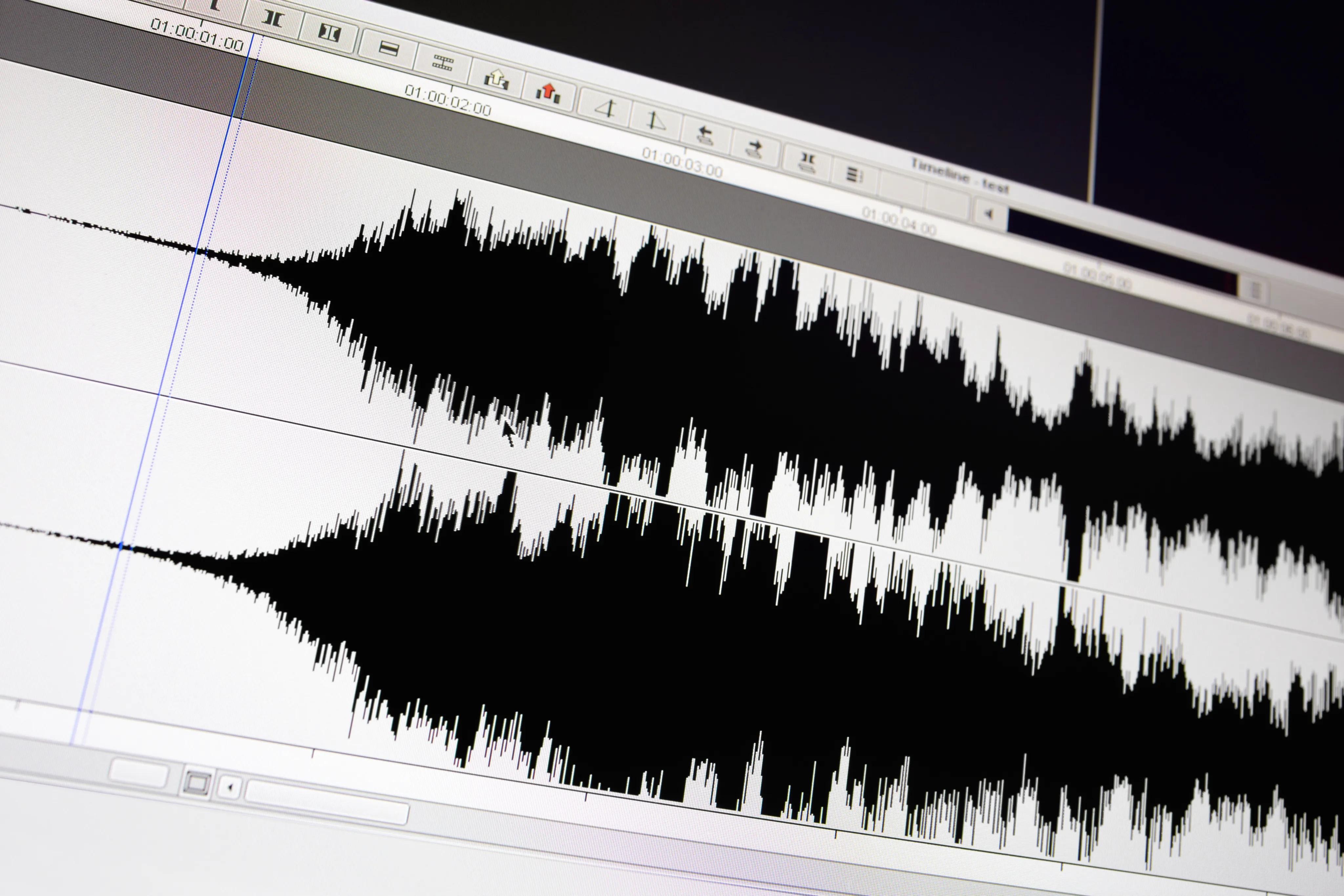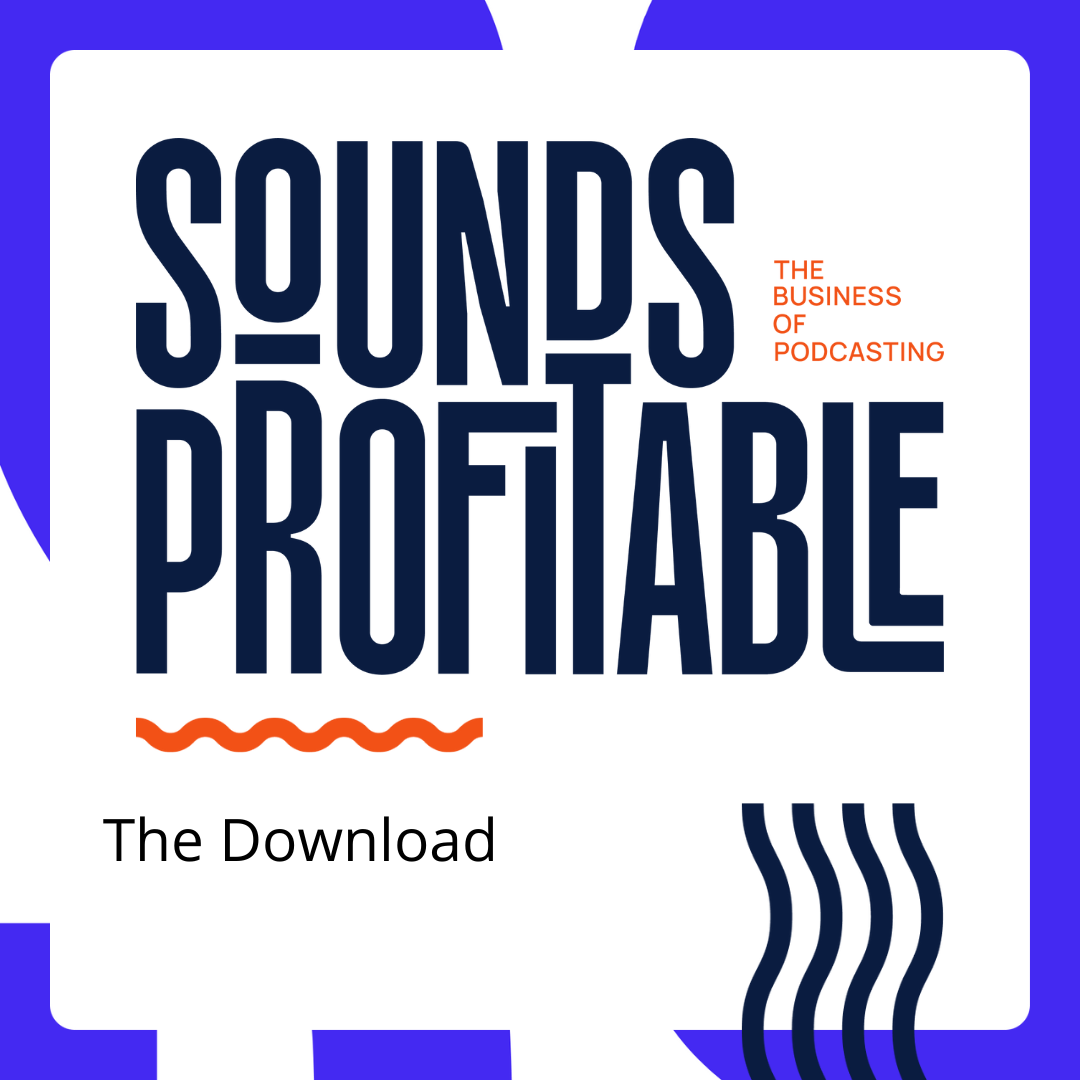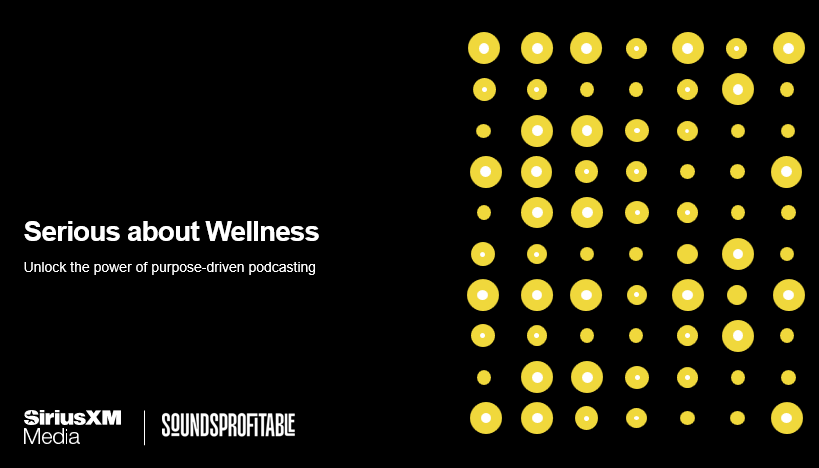Gavin: This is The Download from Sounds Profitable, the most important news from this week and why it matters to people in the business of podcasting. I’m Gavin Gaddis, in for Manuela Bedoya.
Shreya: And I’m Shreya Sharma.
Gavin: The Download is brought to you by Magellan AI. Track the trends in spend, ad load, podcasts on YouTube, and more with Magellan AI’s advertising benchmark report for Q4, available now. You can find a link in the description or visit Magellan dot AI.
Shreya: This week: Google Announces Ad Library, the maturing podcast ad industry attracts more mainstream brands, and Audiobooks could become new audio advertising frontier. Let’s get started.
Google Announces Ad Library
Gavin: Let’s start off the week with some promising news: Google is sharing with the class. From a MarketingBrew post yesterday by Ryan Barwick:
“The world’s largest advertiser is launching an ads library, it announced Wednesday morning. The tool, dubbed Google’s Ads Transparency Center, will let users see which ads an advertiser is running, in what regions they’re running, and the dates those ads ran. The ads library is limited to a 30-day window of ads appearing.”
The library is currently limited to just creatives, so interested parties won’t be able to see who the intended target audience was or the methodology for why the ad was shown.
This Google library will operate similarly to Meta’s version, as well as the isolated libraries both companies maintain to house political ads.
From the article:
“The library builds on the creation of Google’s My Ad Center, a tool that promises to give users more control over the ads they’re shown across search, display, and YouTube. That tool provides users with the ability to limit ads shown around “sensitive categories,” including alcohol and weight-loss ads. However, users can only fine-tune their ad experience—things like whether they’d like to see more ads for restaurants or fewer ads for motor vehicles—on Google-owned properties, not the display ads it places on other sites.”
Ad libraries like this provide a strong level of transparency for both publishers and consumers. From the perspective of the podcasting industry, it is absolutely within our reach to create similar libraries and normalize their existence. Such a standard would bring substantial comfort and accountability to the industry.
Podcast advertising’s maturing, attracting mainstream brands.
Shreya: It seems like just yesterday podcasting was taking its first steps, now the industry’s maturing so quickly. They grow up so fast. This Tuesday Digiday’s Kimeko McCoy covered several instances of mainstream brands recognizing that growth and deciding to invest further. From the article:
“This year, podcast advertising is expected to account for $2.25 billion of ad spend and grow to $3.53 billion by 2026, according to Insider Intelligence. Even with economic uncertainty putting marketing budgets under intense scrutiny, podcast ad buyers said in February they had yet to see a slowdown.”
For an example of this, McCoy points to mattress company Sleep Number. VP of media content and strategy Lisa Bailey told Digiday podcast ad spend now accounts for 20% of the Sleep Number’s audio advertising budget. Coors is getting involved, too. A quote from the piece by Molson Coors Beverage Company senior marketing manager of flavored malt beverages, Josh McDonald.
“We know podcasting is growing in leaps and bounds year-on-year. It’s integrated into our strategy. It’s not a test and learn. We’re leaning into it. It’s a strong piece of our media strategy.”
Similarly, The Weather Channel found success with an ad campaign on Pandora that received six percent lift in overall brand favorability. Agencies told McCoy podcast advertising has become more intriguing as elements like Spotify’s Streaming Ad Insertion and the industry’s adoption of programmatic, as well as better measurement tools. From the article:
“What was once a go-to element in the marketing mix for strictly DTC brands has begun to mature significantly,” Patrick Schmidt, managing director of Wheelhouse Labs, said in an email to Digiday. “Brands accustomed to taking risks to reach their audiences through evolving platforms are winning big with partnerships in podcasts.”
Audiobooks potentially next frontier of audio advertising
Gavin: This Tuesday MarketingBrew’s Alyssa Meyers published a piece covering the concept of ad-supported audiobooks. According to Meyers’ reporting Audible is currently conducting quote-unquote “limited testing” of ads in audiobooks in which a small stable of Audible books are made available to non-members with advertisements. The testing is set to a frequency of eight ads in a 24 hour period.
The newest entrant into the audiobook market, Spotify, has no officially-announced plans or details as to whether there are intentions of doing something similar. Currently the Spotify audiobook platform sells audiobooks for a flat fee, though Meyers points to a comment from then-Chief Content Officer Dawn Ostroff in 2022 in which she said, quote:
“[Spotify is] looking at bringing ad monetization into audiobooks.”
The audiobook industry has grown significantly in the past decade. Last June the Audio Publishers Association published a survey showing audiobook revenue grew 25% in 2021, marking the tenth year revenue increase had remained in the double digits.
At this year’s Hot Pod Summit, author and podcast host Gretchen Rubin said she’s open to the idea of ads running on her books, and proposed a sponsorship model wherein one brand would take all available inventory in one book. There’s several paths companies could go down in monetizing free or discounted audiobook offerings.
That said, audiobooks have traditionally been a product sold either at a flat fee or through a credit-based subscription system on services like Audible. Realm co-founder and CEO Molly Barton told Meyers of Realm’s consumer testing of ads in ebooks and audiobooks returning a clear result. If the price is low enough, users are open to advertisements. A quote from Barton in the article:
“It’s a premium, ad-free, transactional environment, full stop, and so I don’t really see the wisdom of changing that into an ad-supported [space] when there’s already a robust ad-supported ecosystem for audio. Millions and millions and millions of people understand that audiobooks are a paid product, and podcasts are ad-supported, so it seems like a very expensive proposition to retrain people.”
That common knowledge of audiobooks and podcasts being polar opposites when it comes to cost and ad load will be a tricky one to overcome, but not impossible if implemented properly.
Simply pushing a podcast-shaped strategy into an audiobook-shaped hole won’t get the job done, it’ll take finesse and adaptability. Two things podcasting advertising has proven good at in the past.
Shreya: Finally, it’s time for our semi-regular roundup of articles we’re calling Quick Hits. These are articles that didn’t quite make the cut for today’s episode, but are still worth including in your weekend reading. This week:
Gumball Expands Its Host-Read Podcast Advertising Marketplace Model to YouTube Integrations. Gumball’s self-service platform aims to help advertisers manage on-screen integration campaigns with YouTube content creators at speed and scale.
Podcast Company Audacy Shakes Up Its Leadership, Retains Cadence13 Studio by Ashley Carman. Audacy has a new Executive Vice President of Podcasts who promises “the era of the dumb deal in podcasting is coming to an end.”
Gavin: And that was The Download, brought to you by Sounds Profitable! Today’s episode was built using Spooler and hosted on Art19. Find out more at Spooler.fm and Art19.com
I know we went through today’s stories fast, so be sure to check out the links to every article mentioned, right in your podcast listening app, or on SoundsProfitable.com/TheDownload. And thank you for sticking with us as we bring you the top stories you might have missed from the past week. I’m Gavin Gaddis.
Shreya : And I’m Shreya Sharma. Our producers are Bryan Barletta, Gavin Gaddis, and Tom Webster. Special thanks to Art19 for hosting The Download. And thanks to you for joining us.


 "
"


